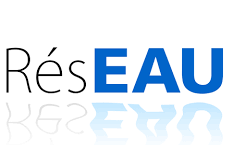Federal Council to take action against scam websites
Bern, 19.11.2025 — Digital crime in Switzerland has more than doubled in recent years. In response to Postulate 22.3457, which was submitted by National Council member Stefan Müller-Altermatt, the Federal Council examined the coordination between the relevant authorities, the police and the domain registry operators with regard to tackling scam websites. This assessment was carried out as part of a report on deactivating scam websites and coordinating the national response to online scams. Approved by the Federal Council at its 19 November meeting, the report concludes that, although the existing legal instruments are fundamentally effective, they must be applied more consistently.
Scam websites, such as fake online shops and dubious investment platforms, are becoming an increasingly serious threat. According to police crime statistics, the number of offences recorded in the digital domain has more than doubled since 2020, rising from 24,389 to 59,034. In 2024 alone, the police registered 890 cases of online scams involving scam websites, with a clearance rate of just 20.9%.
In response to Postulate 22.3457, which was submitted by National Council member Stefan Müller-Altermatt, the Federal Council reviewed the coordination between the National Cyber Security Centre (NCSC), the police forces, and the operators of the .ch and .swiss domain registries. The report concludes that the existing legal framework, specifically the Ordinance on Internet Domains (OID), provides a robust foundation for effective action. When applied consistently, the success rate for blocking scam websites exceeds 95% on a regular basis.
Practical experience shows room for improvement
An analysis of case numbers from 2017 to 2024 reveals significant fluctuations. For example, the number of requests to block scam websites ranged from 20 to 1,492 per year. These figures suggest that the available tools are not being used consistently and are heavily dependent on individual government-led projects. The Federal Council therefore recognises the need for improvements at operational level, such as standardising reporting and response processes between stakeholders, promoting automation, and harmonising cantonal contact point structures.
The report did not identify any immediate need for legislative action. The current remit of the NCSC as the national contact point for cyberthreats is considered sufficient. The focus now lies in consolidating existing cooperation between the Confederation, cantons and domain registry operators, and improving the flow of information. The Federal Council will strengthen coordination in a targeted manner and incorporate the findings into the ongoing development of the National Cyber Strategy (NCS).
Extension planned to cover emerging types of scams
The current blocking measures only cover phishing and the distribution of malware. Fraudulent online shops and investment platforms are only partially covered. As part of the planned revision of the Telecommunications Act (TCA), consideration is being given to whether additional competencies are needed to tackle these newer forms of online scams. This would address the concerns raised in Motion 24.4393, which was submitted by National Council member Michael Götte and recommended for adoption by the Federal Council.
A significant number of scam websites are registered and operated abroad. Effective action therefore requires enhanced cross-border cooperation, both in terms of cybersecurity via international coordination bodies, and in criminal prosecution via Europol and Interpol.
